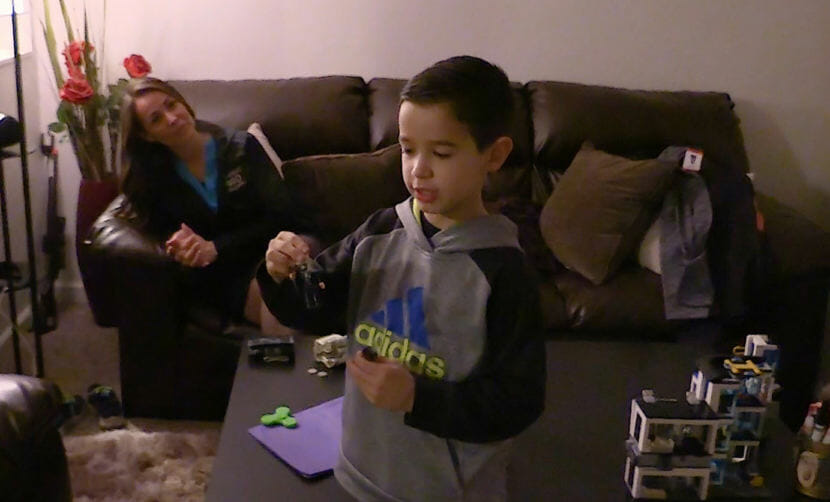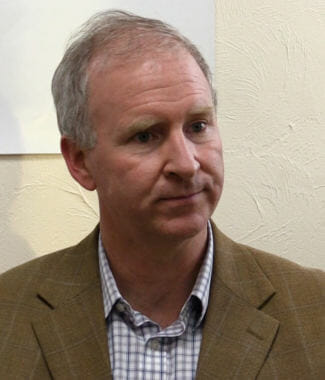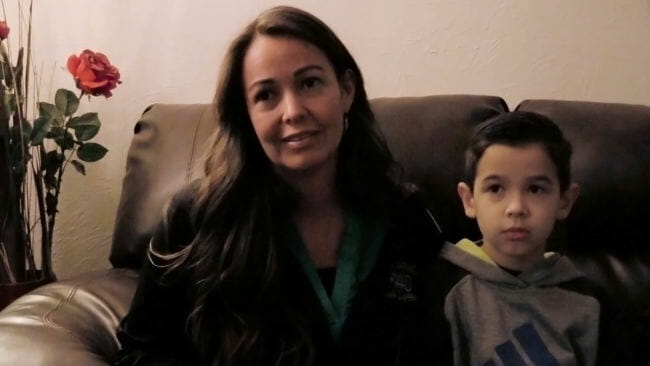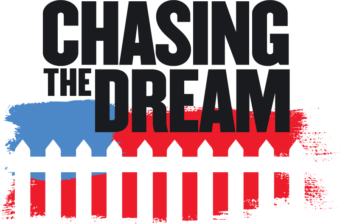
Working parents looking for child care can find themselves without many options in Juneau. Like a lot of things in Alaska, it’s expensive — sometimes costing more than $1,000 a month.
Chloe Abbott and her son, Tristan Ridgeway, have seen the lack of child care first hand.
The energetic 9-year-old likes building things and telling stories. His mom hasn’t had an easy time finding a good fit for him in the child care environment.
Two and a half years ago, Abbott was building a career with the state when Tristan came home one day.
“He said he was getting hurt at day care, by one of the providers,” she said.
Confronted with a decision, she filed a complaint with the state. A few months later, the day care center shut down, citing financial reasons.
When Abbott went to look for a new day care for Tristan, she only found one. That provider spoke almost exclusively Spanish.
She didn’t feel comfortable with the language barrier, so she left her career and found a job where she could bring her son along – cleaning apartments during the week. She also was able to work as a server on the weekends when Tristan was with his father.
But it wasn’t enough.
“Even between those two part-time jobs,” she said, “still that didn’t make up for the break I took in pay.”
Without other child care options for Tristan, Abbott’s work and finances took a hit.
“I lost my retirement,” she said, “because I needed something to make up for – I had a car payment, I had rent, bills, get food, you know, lights. All those things are really expensive here in Juneau.”
A challenge for Juneau
Many parents struggle to find child care in a city with more kids than available slots.
For every licensed child care slot in Juneau, there are almost 3.5 children under 6 without a stay-at-home parent, according to a 2016 report, commissioned by the Association for the Education of Young Children, which helped fund this reporting project.
Even when it is available, child care isn’t necessarily affordable.

“Parents are faced with this dilemma of, ‘Well, I can get a job, but it will cost me almost all my earnings to pay for child care for my child’,” said Brian Holst, the president of the Juneau Economic Development Council and a school board member.
He said some people opt to stay out of the workforce altogether. According Holst, making child care available to more parents could help fill lower paid jobs and make Juneau more attractive to workers with in-demand skills.
“There’s work for people to take if we had opportunities for them to enter the work force,” Holst said.
Recently, there have been a few efforts to boost child care in Juneau.
In 2015, the Assembly voted to relax zoning rules to make it easier to start in-home child care facilities in residential neighborhoods. And there are training and startup resources for new providers.
The business of child care
But in the end, like any business, it comes down to money.
One reason the city doesn’t have enough child care is that providers are getting squeezed financially as well.
Kueni Maake, who has provided child care at ABC Center in Juneau for 25 years, understands the financial pressure.
Like many providers she said she could probably charge more, but she’s reluctant to raise prices when she thinks about the parents and families relying on her.
“I think that’s my downfall as a businesswoman,” she said. “I go with my own emotion a lot of time when I do the rate. I do not go with the market rate.”
But prices that are too low can ultimately mean fewer slots for kids that need them.
Many child care centers lack the income to grow, and some aren’t even able to cover costs and end up closing altogether.

Abbott never did find child care for her son. She stuck it out until Tristan was in school full time and able to be a little more independent.
“Now that he is old enough to spend a little time on his own I can still work full time,” she said. “But it took quite a while for us to get where we’re at right now, and me to get back to the career I want to be in.”
Earlier this year, a volunteer group lobbied the Juneau Assembly to spend sales tax money to subsidize early childhood education, but that proposal lost out to a host of infrastructure and maintenance projects.
 This story is part of our public media partnership with Chasing the Dream: Poverty and Opportunity in America. Major funding is provided by The JPB Foundation. Additional funding is provided by Ford Foundation.
This story is part of our public media partnership with Chasing the Dream: Poverty and Opportunity in America. Major funding is provided by The JPB Foundation. Additional funding is provided by Ford Foundation.
Support on KTOO comes from thread, advancing the quality of early care and education in Alaska.
For more stories that are part of this project, visit KTOO.org/ChasingTheDream

